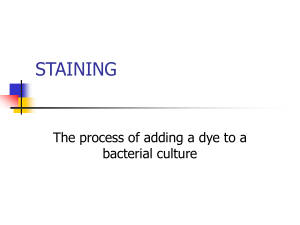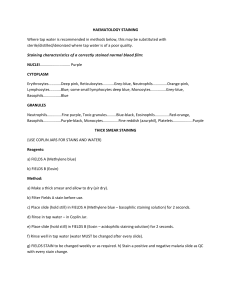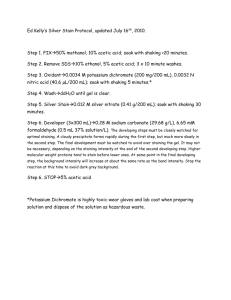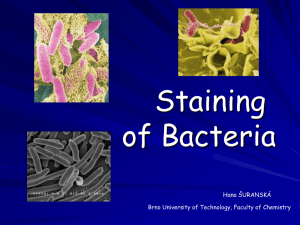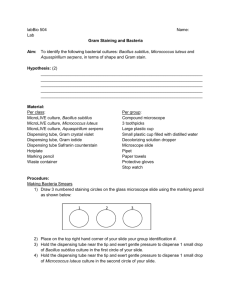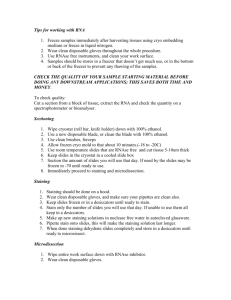Bacterial Staining Questions
advertisement
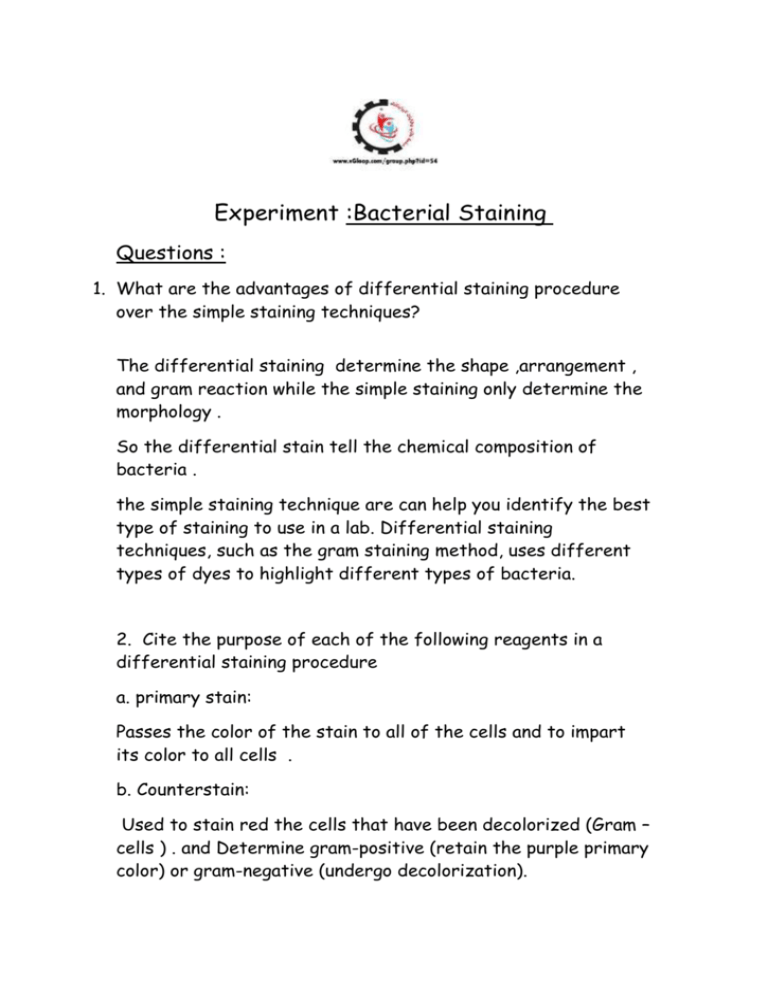
Experiment :Bacterial Staining Questions : 1. What are the advantages of differential staining procedure over the simple staining techniques? The differential staining determine the shape ,arrangement , and gram reaction while the simple staining only determine the morphology . So the differential stain tell the chemical composition of bacteria . the simple staining technique are can help you identify the best type of staining to use in a lab. Differential staining techniques, such as the gram staining method, uses different types of dyes to highlight different types of bacteria. 2. Cite the purpose of each of the following reagents in a differential staining procedure a. primary stain: Passes the color of the stain to all of the cells and to impart its color to all cells . b. Counterstain: Used to stain red the cells that have been decolorized (Gram – cells ) . and Determine gram-positive (retain the purple primary color) or gram-negative (undergo decolorization). c. Decolorizing agent: remove excess dye of cell and may or may not remove the primary stain from entire cell or only certain cell structure Increases the cells' affinity for a stain. 3. Why is it essential that the primary stain and the counterstain be of contrasting color? So it can distinguished from each other . 4.Which is the most crucial step in the performance of the Gram staining procedures? Decolorizing step . as crystal violet stain will be removed from both G+ve & G-ve cells if the decolorizing agent (e.g. alcohol ) is left too long . 5. Because of snowstorm, your regular laboratory session was canceled and the Gram staining procedure was perform on cultures incubated for a longer period of time. Examination of stained Bacillus Cereus slides revealed a great deal of color variability, ranging from an intense blue to shades of pink. Account for this result. The cell wall will begins to leak after the cell dies and the stain does not hold as well.
